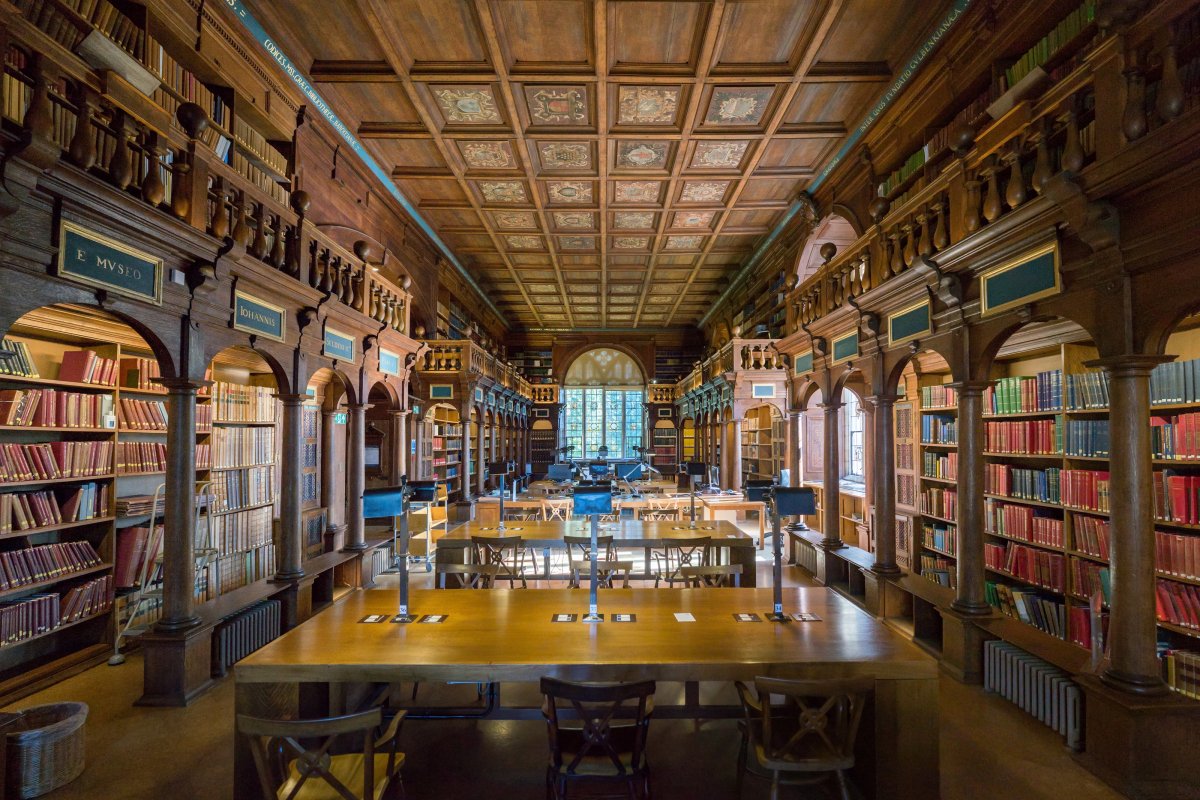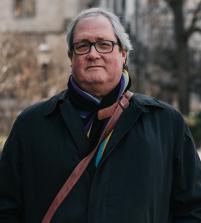
Faustian Bargains
The Great Books, Religion, and “Higher Education”
In a recent review essay of two newly published books advocating for a “core curriculum” in undergraduate education, Louis Menand pretty much excoriates what he rightly calls the most recent in a long list of apocalyptic assessments of undergraduate education. Menand’s essay is directly concerned with two recent books — Roosevelt Montás’s Rescuing Socrates: How the Great Books Changed My Life and Why They Matter for a New Generation and Arnold Weinstein’s The Lives of Literature: Reading, Teaching, Knowing — but he also invokes such less recent but by now controversial titles as Allan Bloom’s The Closing of the American Mind and William Deresiewicz’s Excellent Sheep. Menand’s substantial analytic and rhetorical gifts serve a strong case that these books collectively tell “a story that never ends,” and his jibes at the self-importance of a certain kind of apologist for liberal education – one who avers that it “just makes for better human beings” without being able to say how – hit their marks and afford a powerful rejoinder to those who are only too ready to make grandiose claims for “the aims of education.”
Menand’s repeated but mostly unglossed references to religion in his essay are striking. These books, he writes, can be summarized as delivering the message that “It’s all gone to hell.” They are pervaded by the palpable sense that “higher education has lost its soul.” These would-be Jeremiahs feel that “they are doing God’s work.” In brief, they are evangelists – not a compliment, I suspect, for Menand.
Menand does make explicit address to religion in the essay’s most apodictic statement: in the creation of the modern University, the Big Loser was not Literature but Religion (my uses of upper case, not Menand’s).
Menand does not elaborate on this point, almost certainly because he makes it in service of his more general claim that the Jeremiahs are tossing ostensible thunderbolts at the wrong target. But it seems clear that this is his essay’s underlying premise. It offers much to consider about the proper and the improper places of religion in “higher education.”
I serve on the faculty of an institution whose chapel includes a plaque in its vestibule saying that the chapel’s location near the main quadrangle is meant to signal that religion should always be at the center of the University’s work. On more than one occasion while marching with colleagues into that chapel (usually for graduation), I have pointed out that plaque and recited its message. Reactions have ranged from (dismissive) amusement to (pregnant) pause to (outright) dismay. This is unsurprising to anyone on any campus who pays even middling attention to its buildings and history. In this respect, a modified version of Menand’s point is correct: the religious origins of many of America’s major universities are its best kept secret these days.
But it’s equally true that just what, for instance, Chicago’s William Rainey Harper understood by “religion” was at a significant remove from what today is understood to be Christian evangelicalism. (I suspect the same is true of actual Christian evangelicalism, but that is another column.) Harper’s fundamental model for Chicago was the nineteenth-century German university system, an establishment devoted to research and teaching across all fields of knowledge. To the degree that his model was “evangelical,” it had less to do with his commitments as an American (not Southern) Baptist, and more with his conviction regarding the innate complementarity of research and teaching. Harper viewed education as a lifelong task in the service of truth, crystallized by work in library and laboratory and their respective classrooms. In each the aim was intrinsic excellence, buttressed by a common faith that the exercise of intellectual rigor in getting something right has enduring value in itself.
The major problem facing “higher education” today – and Harper’s own vision can be and has been construed in its service – is the reduction of this work to “impact.” When this happens, the very real risk is that research and teaching only pass muster when in the service of what is perceived to be the public good. In our present moment there are two such goods: money, and politics. If scholarship serves one of those ends, however obliquely, it is striving for impact. If it does not serve those ends, it earns at best a dunce’s cap and at worst a summons to see the principal.
Hence the visceral enthusiasm on campuses in the aftermath of 9/11 for scholarship on Islam. Unpack the underlying assumptions of that enthusiasm and you will see exactly what “impact” means, and what it does not mean. Islam was interesting not because it is an enduring religious tradition of global intellectual and practical stature that has afforded longstanding, intricately powerful address to major questions concerning the true, the good, and the beautiful for millions of people. Rather, Islam was interesting because of assumptions regarding agents of terror.
In this instance, universities enacted a significant paradox: they redressed an embarrassing lacuna in their history of “the great books” not because of Islam’s intrinsic worth but chiefly because of a judgment about its “impact.”
There is a kind of Faustian bargain here that ought to trouble citizens both inside and outside the academy: the market dictates interest, and the University follows the market. To be clear: what is at stake is not “the great books” or a nostalgia for a core curriculum that never was. A better way perhaps to illustrate the true stakes is via anecdote. When he was President of the University of Chicago, Edward Levi was repeatedly congratulated on the University’s sponsorship of the nuclear testing initiative that supported the Manhattan Project. Levi’s response: “Thank you, but any University presented the opportunity would have done that. I’m proud of the fact that our Press has committed to the Hittite dictionary.” That sensibility is a precise inversion of the story of Islam after 9/11.
I share a gentler version of Menand’s aspersions for those who advocate for the “Great Books,” but I worry that, once the dust has cleared, Menand himself can offer no constructive answer to the implications of the University’s Faustian bargain. Should the humanities be privileged over the sciences, social or natural, in the work of the University? No, but neither should money, or the most recent political concern (however urgent it is). An example of such an answer can be located in Alfred North Whitehead’s Aims of Education, which argues that science and religion represent the two kinds of questions that people ask about the world. Whitehead thought that education should aim both to understand the past and to think progressively about the future. He suspected that those future questions – about what we want the world to be – were religious (but he also clearly thought they were too important to leave only to scholars of religion!). On Whitehead’s terms, Religion’s loss was also the University’s loss.
There is of course much to debate in that claim. That said, it provides real address to the University’s Faustian bargain. Money has nothing to do with it.


